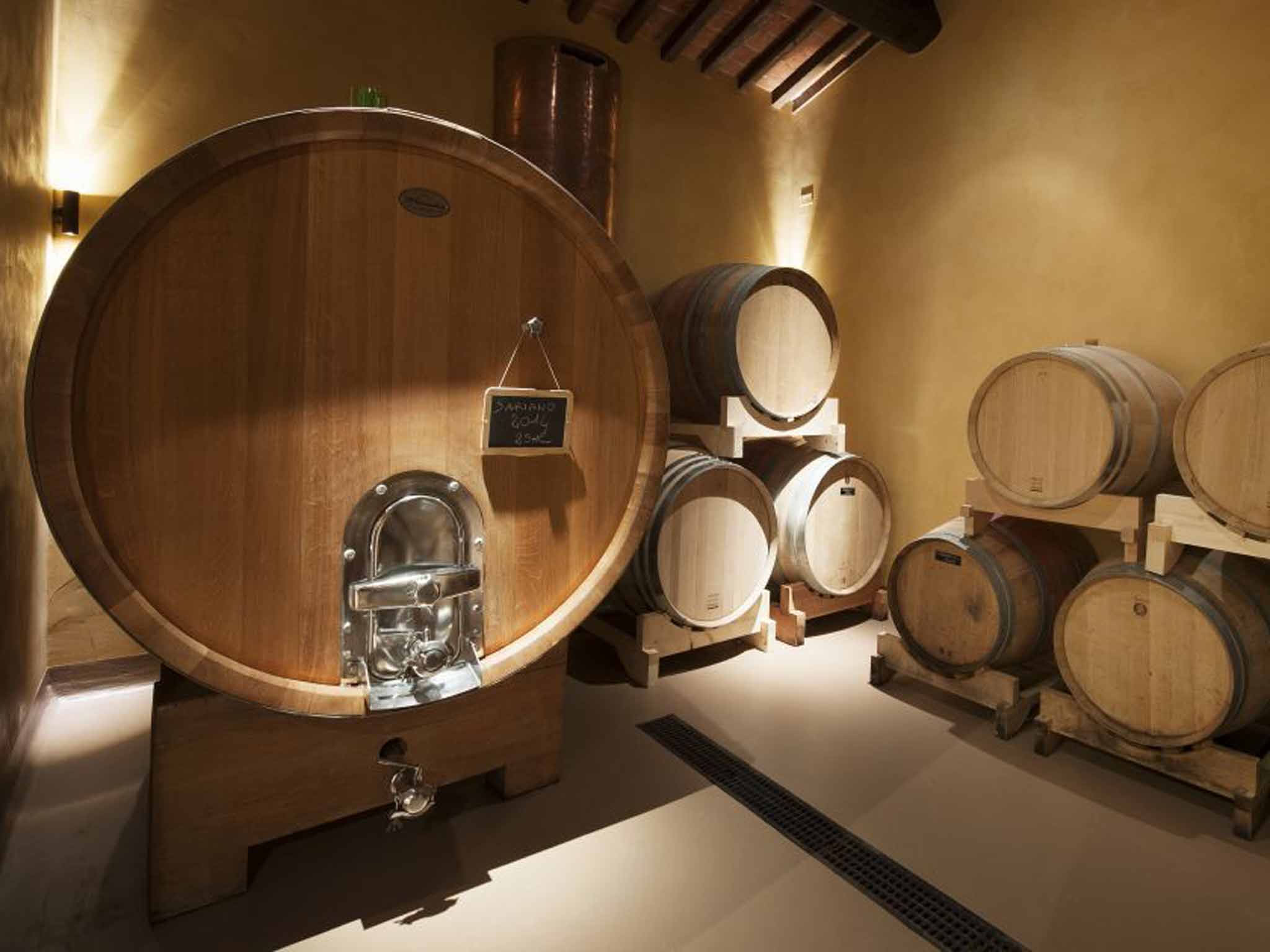Villa Spalletti Trivelli: A break to Italy in a hotel with a difference
While farming is increasingly difficult occupation, specialists focusing on making one particular product and doing it well are doing better than ever

Giangiacomo Spalletti-Trivelli seems like an unlikely farmer. His family, originally from Switzerland, made good at the end of the 19th century and built a large villa that bears their name, across from the Quirinal Palace in Rome, where his grandmother was lady in waiting to the queen. After years of trying to make the family villa into a viable business as an event space and filming location, Spalletti-Trivelli decided to turn the place into a hotel in 2004. He had, he says cheerfully, "no experience at all in hospitality".
You wouldn't know it, however, because the 12-room hotel is one of the best I've ever visited. It is a model of the genre. Not just because of the kind staff, the lack of pretension, the Flemish tapestries or the fully stocked library or even the Turkish baths, but because of the food and the drink. Not only do all rooms have free mini bars with everything from Aperol to Fernet Branca, they also have one of the best breakfast spreads I have ever seen. What is best of all, though, is that the hotel is reaching for self-sufficiency, as much as they can: for once, that American phrase, increasingly popular in Britain, "farm-to-table eating", rings true. Quite often, the terms seems to be just a loose cover-all, implying not very much at all. Not so with Spalleti-Trivellis.
Although they plan to grow even more produce from their land, at the moment they are focusing on doing what the Umbrian and Tuscan countryside does best: wine and olive oil. Punters paying 35 euros (£26) can visit the Pomario estate, taste all the wines and oil and have a three-course meal above the winery with the family. And considering that it only started producing in 2009, the family has a quite remarkable list of achievements to it name. The vineyard produces, amongst others, sangiovese, trebbiano and malvasia grapes, along with a clone of Bordeaux Merlot. These are used in the two organic wines. There is a rich, cherry and plum-rich red, Sariano, which scooped a silver medal at the 2014 Decanter World Wine Awards, a citrus-y white, Arale, and a rosé, which they have just bottled.
The extra virgin olive oil was also garlanded with three leaves in the Gambero Rosso Guide in 2014, too – and you can understand why when you taste it, the almost-grassy flavour blooms in your mouth.
Spalletti-Trivelli has tapped into two of the emerging currents in hospitality: specialisation and what you might call showman-isation.
While farming is increasingly difficult occupation, specialists focusing on making one particular product and doing it well are doing better than ever.
True, it might cost more than the stuff you get in Tesco, but what you are paying for is environmental peace of mind and an assurance that what you are drinking and eating is the best it can be.
Similarly, by adopting such a visible role in his hotel and on his farm land – he takes you through the tasting – he embodies the antithesis of the faceless corporation – and when it comes to food, that is exactly what most of us are after.
More power to your vineyards, Mr Spalletti-Trivelli.
Join our commenting forum
Join thought-provoking conversations, follow other Independent readers and see their replies
Comments
Bookmark popover
Removed from bookmarks